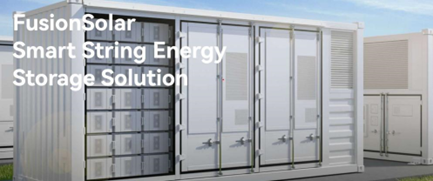"Beats Flex-fragment design special edition" is now on sale on Apple's official website
11/03/2022

Whether you're just starting with solar power and trying to figure out what system would work best for your building, or you've had solar panels installed on your house for a while, investing in solar batteries with solar battery storage can greatly improve your setup's efficiency and adaptability. If your solar panels produce more electricity than you need, you can store them in solar battery storage to use on overcast or rainy days or after the sun goes down. You may charge your batteries with this energy and use it to power your home. With the help of our solar battery guide, you can get the answers to your questions and make an informed decision on which solar battery option is best for your home or business.
Criteria to be Considered Before Making a Purchase of a Solar Battery
Your solar battery's efficiency could be due to several things. When deciding on a battery system, keep the following in mind:
· Battery Durability
The "lifespan" of a battery is dependent on several variables, including the battery's age, type, quality, and depth of discharge. If you want to know how long a battery is supposed to last, you should look at the manufacturer's specifications.
A lead-acid battery's useful life can be anything from a year to ten years, depending on the use. Seven to fifteen years is the typical lifespan of lithium-ion batteries.

· Material
There are many kinds of batteries, and each one has its own set of advantages. You may be able to choose the best style for you by weighing these pros and cons. If you are looking for a battery that is both small and long-lasting, lithium-ion batteries can be a good choice. If you are aware of more pressing financial constraints, lead acid might be a better option.
· Efficiency
Solar systems and batteries aren't perfect when it comes to storing and transmitting the energy that has been harvested from solar panels to them. This is because a specific quantity of energy is lost in the process. Considering the amount of energy that your panels can produce and the setup of your system, it may be wise to purchase a more costly but more efficient battery. Possible savings in the long term might emerge from this. Any competent sales and installation crew can give you an estimate of your solar panels' efficiency and battery capacities and walk you through the whole system.
· The Discharge's Depth
What is meant by "depth of discharge" when discussing batteries is the quantity of energy that is used up before the battery can be fully recharged. You should usually expect a battery's lifespan to decline as its charge level drops.
Battery packaging usually includes a cycle life estimate and a suggested maximum depth of discharge. The cycle life estimate specifies how many cycles the battery will last given a specified depth of depletion.

Even though deep discharges accelerate the degradation of both lead-acid and lithium-ion batteries, the former usually has less tolerance for such discharges than the latter. This drastically shortens the battery's lifespan when it's discharged too often.
Conclusion
Although there is a significant outlay of capital required to acquire solar batteries, doing so may help you save money on energy costs during off-peak hours or power outages. Battery durability, material, efficiency, and discharge depth are the main keys you should consider when looking for a solar battery. For those who choose to live independently of the power grid, they could be essential parts of their energy system. Solar batteries allow you to power your home with renewable energy that is clean, relatively eco-friendly, and wouldn't require an outside source to provide.